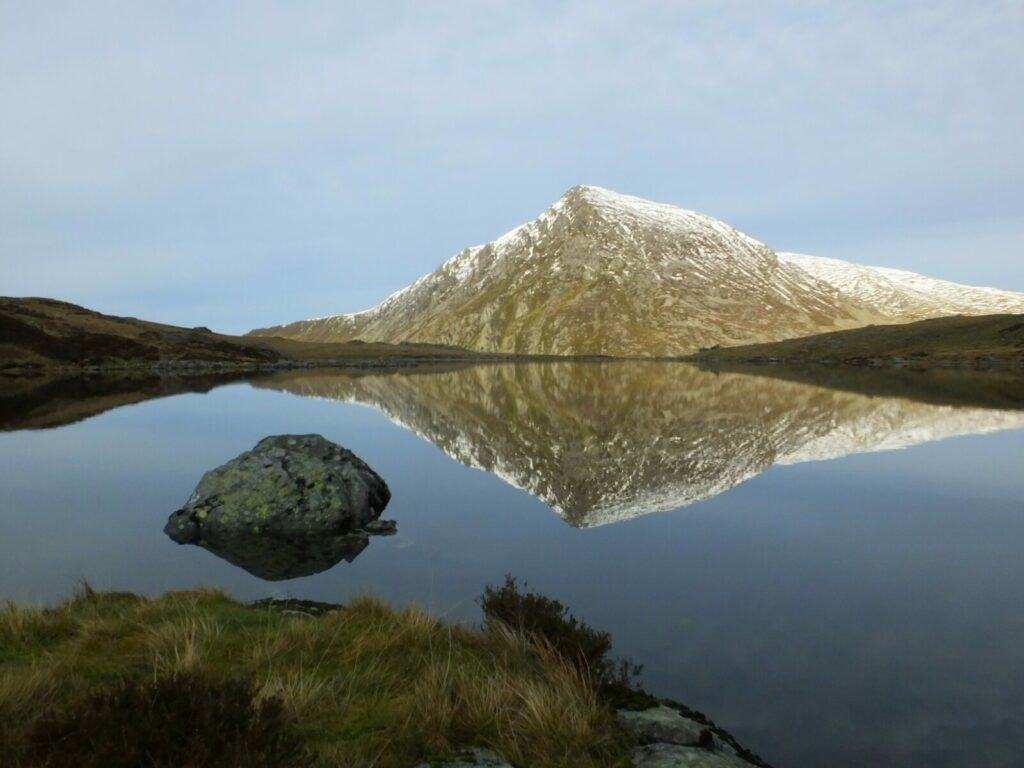In addition to being in the Natural Nature Reserve, Llyn Idwal has its own designation. The lake designated a RAMSAR site in 1991. The RAMSAR designation (named after the Iranian city in which the Convention on Wetlands was signed) is an international treaty aimed at conserving wetlands.
Llyn Idwal is included due to its oligotrophic nature and the rare plant species living in it. You’ll also see a variety of animals living there, such as grey heron, common sandpiper, brown trout and create crested grebe.
Oligotrophic Lake
Oligotrophic lakes are nutrient poor. They tend to have very clear waters, high oxygen content and low nitrogen content. They also tend to have a lower concentration of aquatic plants with gravel and rock at the bottom rather than mud and silt.
Llyn Idwal is an excellent example of an oligotrophic upland lake. It is of particular importance as it contains almost all the plant species typical of such waters in Britain. It is also home to some very rare plants some of which such as the Pillwort (Pilularia globulifera) are considered internationally under threat.
Name of the Lake
Llyn Idwal is also significant as it gives the Cwm (and the nature reserve) its name. Legend has it that Idwal was the son of the 12th century prince, Owain Gwynedd. Idwal was handsome and scholarly, but a poor warrior. To protect his son, Owain sent Idwal away to live with his uncle, Nefydd, while Owain was away at war. Nefydd was a jealous man and bitter that his own son, Dunawd, was dim and unwitting – in stark contrast to Idwal.

One day Nefydd took the two boys for a walk, and as they approached the lake, Dunawd pushed his cousin into the lake on the order of his father, knowing full well that Idwal could not swim. As Idwal drowned Nefydd stood by the shore laughing at his nephew. Upon hearing of his son’s tragic death, Owain banished Nefydd from the kingdom and named the lake, Llyn Idwal in memory of his son. It is said that to this day no bird will fly over the lake, still in mourning over Idwal’s death.